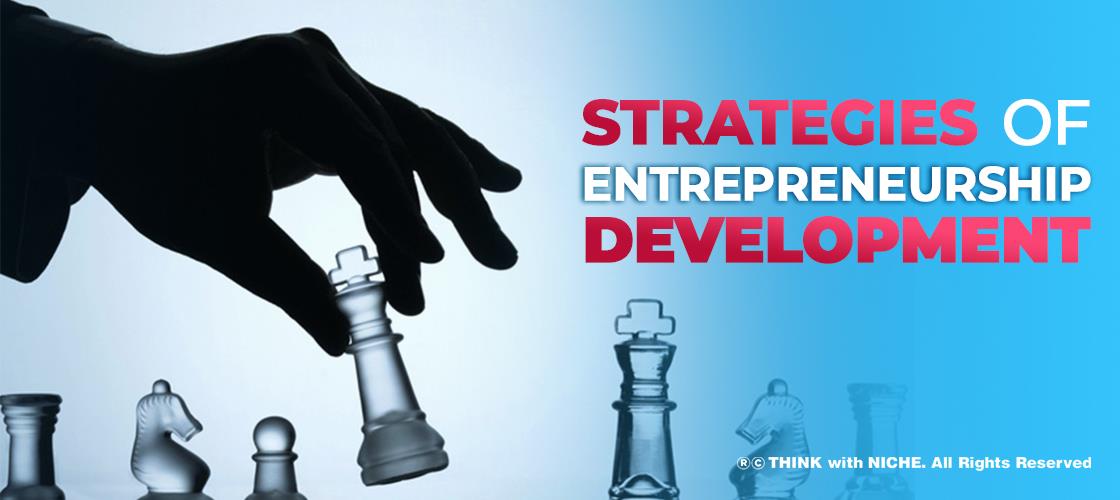7 Types of Entrepreneurship and Why They Matter

Blog Post
Entrepreneurship is dangerous, but it can also be extremely rewarding, as it contributes to economic riches, growth, and innovation. Entrepreneurship is the process of bringing a Business Idea to life by combining capital and labor to generate goods or services for profit. For entrepreneurs, securing money is critical: SBA loans and crowdsourcing are two options for funding. #TWN
While the essential concepts of entrepreneurship remain the same—planning, beginning, and running a business—the specific details and abilities required differ depending on the type of firm you want to create. Being an entrepreneur necessitates the capacity to articulate these distinctions and determine the specific factors required. Entrepreneurship has traditionally been divided into four categories: small firms, scalable startups, huge corporations, and social entrepreneurs. These models cover the fundamentals of launching a business and place a greater emphasis on the firm itself rather than the entrepreneur's attributes. Businesses, like the rest of the world, are always changing. It opens up new potential for risk-taking and game-changing entrepreneurs to pioneer the way in a variety of ways.
With this in mind, while there are many parallels in the obstacles that all business owners will face, there are several forms of entrepreneurship determined by the entrepreneur's abilities, attributes, and personality factors. At the end of the day, the manner you operate your business is what distinguishes them from one another.
When it comes to starting a business, entrepreneurs confront numerous challenges. The following are the three that many of them consider being the most difficult:
- Getting around bureaucracy
- Recruiting top talent and
- Securing funding
Small Business Entrepreneurship
This sort of entrepreneurship refers to any small business started by a single person with no intention of expanding or franchising. If you wanted to create a nail salon, a general store, or a taco truck, for example, your goal would be to open only one location. To get your firm off the ground, you'll most likely need to hire local staff or even family members, and you'll need to put your money into it. In this form of business, you only make money if your firm does, therefore you must be extremely motivated, accountable, and dedicated to your mission. In 2020, the United States had 33.7 million small firms, accounting for 99.9% of all businesses, demonstrating that small business entrepreneurship is on the rise.
Scalable Startup Entrepreneurship
Scalable companies, which are motivated by the desire to change the world, concentrate on developing a business model that is both repeatable and scalable (more sales with more resources). From the start, this type of entrepreneurship is based on the expectation of rapid growth and high-profit margins. Many firms follow a similar 'garage to riches' story, starting with a simple concept that is brought to life by entrepreneurs' persistence with the help of investors. Amazon, Google, and Apple are all instances of ground-breaking companies that have altered the world. You must pay attention to the quantity of money you have (which is typically supported by venture capital investors) and the human resources behind your business to develop a successful startup. Knowing the long-term objectives for profitability and how your company will expand, both for the sake of your investors and your sake is essential when launching this type of business model.
Social Entrepreneurship
Social entrepreneurs are entrepreneurs whose primary purpose is to provide products and services that improve the world while still making money. Nonprofit, for-profit, or hybrid businesses that are committed to social or environmental improvement are referred to as social entrepreneurs. Educational initiatives, microfinance organizations, and companies that provide banking services in developing countries are just a few examples. Toms Shoes was a social entrepreneur pioneer, proposing a one-for-one sales model that supplied a pair of shoes to a child in need for every pair of shoes sold starting in 2006. The measure of success that distinguishes social entrepreneurship from other forms is that the goal is not just financial gain but also social effect.
Large Company Entrepreneurship
Large firm entrepreneurship refers to companies with finite life cycles, such as Disney, Google, Toyota, and Microsoft, that continually innovate and offer consumers new items that are variations on their core product line. This sort of entrepreneurship is distinguished by the fact that it does not include the establishment of a new firm, but rather the development of new products or subsidiaries inside an existing company or the acquisition of smaller businesses (like when Facebook bought Instagram and WhatsApp). These divisions are more directly focused on extending the client base, developing the business, and reaching new markets. A commitment to establishing company culture, which ensures that when a firm grows, all employees are a part of it, is another aspect of large-scale entrepreneurship.
Innovative Entrepreneurship
As the name implies, innovative entrepreneurs are always on the lookout for the next big thing. You might be an innovative entrepreneur if you have ground-breaking ideas for how to start a business or specific services and goods that can be turned into commercial endeavors. You realize as an innovator that you need to be informed of current market conditions at all times to come up with unique and innovative ways to disrupt them. Not only does innovation refer to product concepts, but it also pertains to how businesses are run. Changing the existing quo and pushing limits are all part of innovative entrepreneurship.
Buyer Entrepreneurship
"Money makes money," as the saying goes, and for a buying entrepreneur, this is certainly true. Rather than working out how to generate funds for a firm, a buying entrepreneur buys a startup or an established company and helps it grow. Unlike investors, a buyer entrepreneur is financially and personally invested in the firm, remaining active and actively contributing to the growth of the investment. Buyer entrepreneurs frequently delegate leadership to others, but they always remain involved in the enterprises they acquire.
Researcher Entrepreneurship
Entrepreneurs that are researchers focus on facts, statistics, and the conviction that with the correct preparation and information, they will have a better chance of succeeding. If this sounds like you, research entrepreneurship is for you. It combines a fantastic business idea with academic research and an understanding of how to make the most of limited resources. Consider Nobel Laureate and physicist Theodor Hänsch, a researcher and entrepreneur who co-founded MenloSystems and used his winning optical frequency comb technique to create marketable goods.
Conclusion
An entrepreneur is a person who develops a business from a concept or a product, a process known as entrepreneurship. Building a business takes a lot of time and effort, and not everyone is made out of it. Entrepreneurs are highly motivated risk-takers who have a vision and are willing to make significant sacrifices to accomplish it. Entrepreneurs go into business because they enjoy what they do, believe their product will have a positive influence and want to benefit from it. Entrepreneurial actions power the economy by creating firms that employ people and produce goods and services that consumers purchase.
If you liked reading this article, we have two more for you. Click on the link below to explore!
Youth Entrepreneurship and its Significance across Global Platforms
You May Like
EDITOR’S CHOICE














